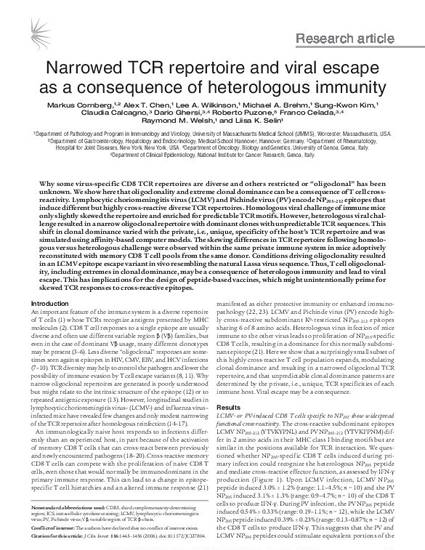
Why some virus-specific CD8 TCR repertoires are diverse and others restricted or “oligoclonal” has been unknown. We show here that oligoclonality and extreme clonal dominance can be a consequence ofTcell crossreactivity. Lymphocytic choriomeningitis virus (LCMV) and Pichinde virus (PV) encode NP205–212 epitopes that induce different but highly cross-reactive diverseTCRrepertoires. Homologous viral challenge ofimmune mice only slightly skewed the repertoire and enriched for predictable TCR motifs. However, heterologous viral challenge resulted in a narrow oligoclonal repertoire with dominant clones with unpredictableTCRsequences.This shift in clonal dominance varied with the private, i.e., unique, specificity of the host’s TCR repertoire and was simulated using affinity-based computer models.The skewing differences inTCRrepertoire following homologous versus heterologous challenge were observed within the same private immune system in mice adoptively reconstituted with memory CD8 T cell pools from the same donor. Conditions driving oligoclonality resulted in an LCMVepitope escape variantin vivo resembling the natural Lassa virus sequence.Thus,Tcell oligoclonality, including extremes in clonal dominance, may be a consequence of heterologous immunity and lead to viral escape. This has implications for the design of peptide-based vaccines, which might unintentionally prime for skewed TCR responses to cross-reactive epitopes.
Available at: http://works.bepress.com/dario-ghersi/8/

© 2006 American Society for Clinical Invenstigation